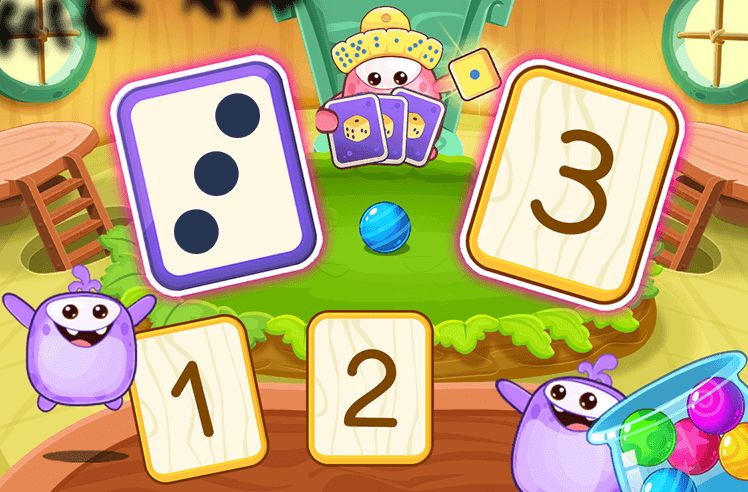
Math requires learners to have a solid foundation because many of those who can’t understand how it works generally don’t know enough about the basics. This is where math games come in.
Math games have the potential to help improve mental calculation. It’s able to do this by challenging mental capacities, allowing students to tap into more of their cognitive abilities without much stress and pressure.
However, exactly what type of math games will help improve mental calculations? Let’s find out!
Math Games to Help Improve Mental Calculations

Here are several math games that can help mental calculation for all ages:
1) Bouncing Sums
Here’s a game that can help your students learn more about addition. 4 or more players best play this game, but the mechanics are very simple, yet it can be quite enjoyable.
You will need to prepare a beach ball, labels, and markers. Every student will have their own set of labels. Give the ball to one player who will read their label out loud while touching one of his thumbs.
That player will then toss the ball to other players and so on. Every time a student catches a ball, they will read their label out loud and add or multiply the number with the sum or product given by the previous player.
In the beginning, this is a very simple game. As it progresses and the number grows bigger, it will be more and more challenging. The player who gives the wrong answer will be out. To win it, you need to be the last person standing!
This game can be a good warm-up for math classes because it helps build math calculation muscles. Plus, it can also teach them more about concentration and focus.
2) Multiplication War

Memorizing the multiplication table can be difficult for kids because all they see is numbers.
However, it’s undeniable that multiplication is one of the most basic but important concepts of mathematics. Fortunately, students can learn it in an easier way by playing the Multiplication War game.
Multiplication War is a 2-player card game. First, you have to shuffle the deck and give an equal number of cards to every player. Each player will draw two cards that they will face up, read the numbers like a math sentence, and then give the corresponding answer. For example, if the player draws a 5 and a 3, the math sentence with the answer could be 5×3= 15.
The player with the larger product will take the face-up cards and put them at the bottom of their deck. To win the game, you need to run out of cards as much as possible!
You need the luck to be on your side for you to draw cards with a lower product.
3) 101 and Out

This game can help improve multiplication for children as young as those who are in 2nd grade. What makes this game very interesting is the fact that the mechanics are simple but can still ignite competitiveness in every player.
At the same time, it’s a fun game, making it a perfect activity to end a long, difficult math class for good memories and de-stressing.
There must be at least 2 players to play the game, but the more players there are, the more fun it will be! The goal is to score close to 101 without going beyond it. It has the same fundamentals as the game, Black Jack.
Each player will be given a dice. They will take turns rolling it. They can either choose to keep the face value of the die or multiply it by 10. For example, a player rolling a five can either keep the value at five or multiply it by 10, making it 50.
You can give each player 5 alternating turns, and the one with the closest result to 101 takes the price.
This game does not only help improve with addition and multiplication skills. It also helps students develop the ability to create their own strategy, so it’s like killing two birds with one stone!
Simon Says (Geometry Version)

You must be familiar with the game Simon Says since it has been very popular since way back. This game is quite versatile, and it can also be made into a math game by incorporating basic geometry, making it the perfect way to introduce concepts to kids who are in Primary 2.
The rules of this game are simple. Students must follow all the commands that start with “Simon Says.” However, if the command does not start with this phrase and the player does the action, then they are out. The last player standing wins the game.
So how can you incorporate basic geometry in this game? You can do this by simply making your command about geometric concepts. For example, “Simon says draw perpendicular lines on the air.” You can make the game even more challenging by speeding up your commands and varying it with “Simon Says” or just regular ones.
Conclusion
Sure, math games can make the subject less dreadful, but they won’t necessarily make your students a math whiz overnight. Although it will help them understand concepts better, nothing will replace the effectiveness of having a good teacher or tutor, especially if you want your student to keep up with their peers.
We hope this article has been helpful in giving you ideas!
